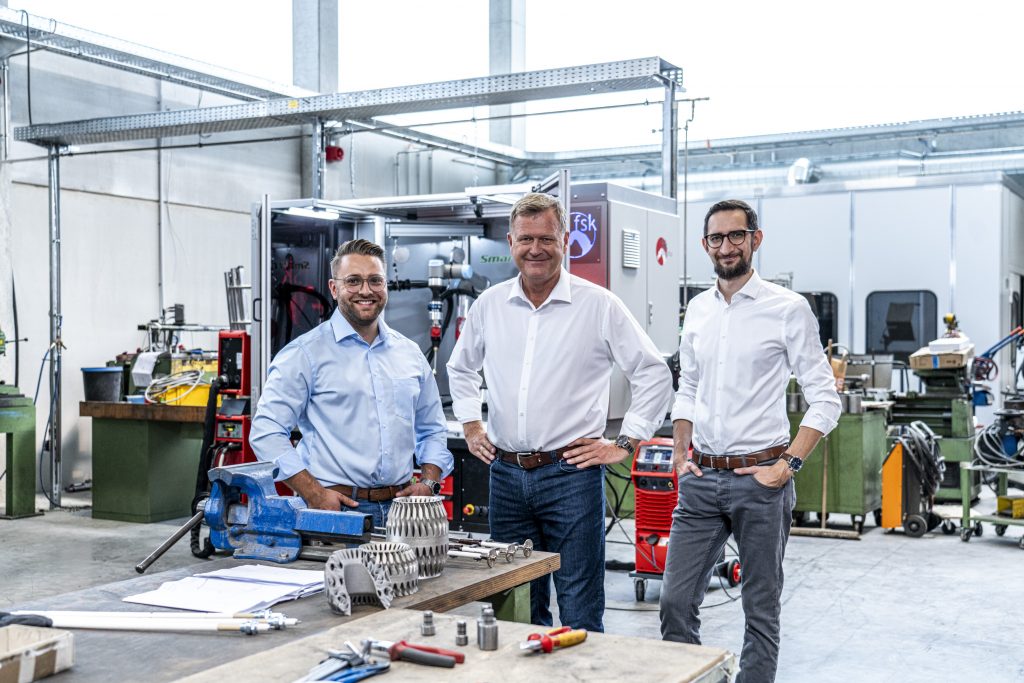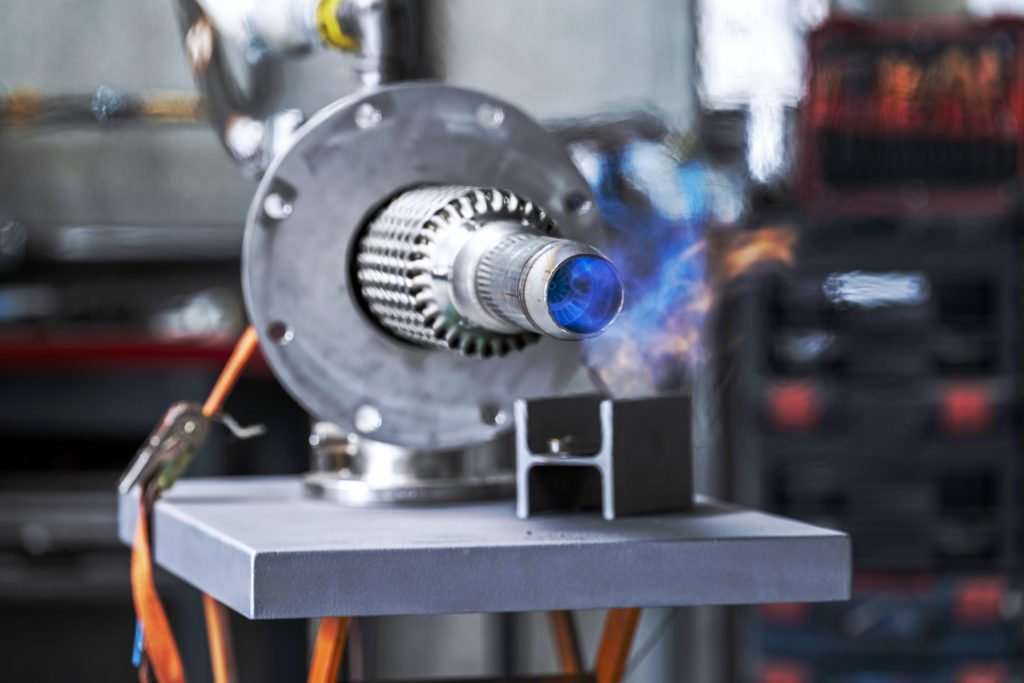13 Sep
German Future Prize 2023: We are nominated!

The joy in our team is great, because today Jens te Kaat, Adrian Moldovan and Bernd Feller were nominated for the German Future Prize for the development of the iRecu! This makes them one of three teams that have made it into the “circle of the best” with their innovative projects. The final winning team will be presented with its award by German President Frank-Walter Steinmeier on the evening of November 22 following the jury’s decisive meeting. The German Future Prize will be awarded for the 27th time this year.
Sustainable upgrade of existing plants
“We are absolutely proud to be nominated for such an important award alongside major companies such as Siemens and Airbus,” said Adrian Moldovan, nominated engineer at Kueppers Solutions. Four years were spent researching and developing the iRecu. Now, the first plants have already been converted to the dual-fuel recuperative burner. Thanks to the innovative dual-fuel mixing unit, these can be fired with both natural gas and hydrogen, depending on demand and availability and without any additional effort. This makes the innovation a crucial element with regard to the gradual introduction of green hydrogen in industry and the CO₂-neutral orientation of many industrial companies.

In addition to being dual-channel and hydrogen-fired, the iRecu also delivers benefits to plants that continue to run on natural gas only. Thanks to an innovative heat exchanger, the burner provides immediate fuel savings ranging from 12% to 50%. The use of the iRecu therefore makes industrial heat treatment plants more energy efficient and at the same time “hydrogen-ready”.
“A big thank you also goes to the first movers, as we like to call them, who were the first companies to convert their plants to our iRecu. New innovations cannot be integrated into existing plants without mutual trust and courage,” explains Domenik Prüßmann, commercial director of Kueppers Solutions. “Our partners are companies that are clearly aware of their responsibility in the course of the energy transition.”



